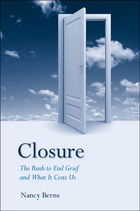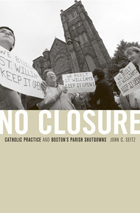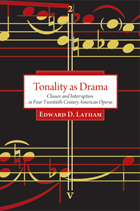
When it comes to the end of a relationship, the loss of a loved one, or even a national tragedy, we are often told we need “closure.” But while some people do find closure for their pain and grief, many more feel closure does not exist and believe the notion only promises false hopes. Sociologist Nancy Berns explores these ideas and their ramifications in her timely book, Closure.
Berns uncovers the various interpretations and contradictory meanings of closure. She identifies six types of “closure talk,” revealing closure as a socially constructed concept—a “new emotion.” Berns also explores how closure has been applied widely in popular media and how the idea has been appropriated as a political tool and to sell products and services.
This book explains how the push for closure—whether we find it helpful, engaging, or enraging—is changing our society.

Reising suggests that these "non-endings" entirely refocus the narrative structures they appear to conclude, accentuate the narrative stresses and ideological fissures that the texts seem to suppress, and reveal "shadow narratives" that trail alongside the dominant story line. He argues that unless the reader notices the ruptures in the closing moments of these works, the social and historical moments in which the narrative and the reader are embedded will be missed. This reading not only offers new interpretive possibilities, but also uncovers startling affinities between the poetry of Phillis Wheatley and the fiction of Henry James, between Charles Brockden Brown’s Wieland and Melville’s least-studied novel, and between Emily Dickinson’s poem "I Started Early—Took My Dog" and Disney’s animated classic.
Pursuing the implications of these failed moments of closure, Reising elaborates on topics ranging from the roots of domestic violence and mass murder in early American religious texts to the pornographic imperative of mid-century nature writing, and from James’s "descent" into naturalist and feminist fiction to Dumbo’s explosive projection of commercial, racial, and political agendas for postwar U. S. culture.

In 2004 the Roman Catholic Archdiocese of Boston announced plans to close or merge more than eighty parish churches. Scores of Catholics—28,000, by the archdiocese’s count—would be asked to leave their parishes. The closures came just two years after the first major revelations of clergy sexual abuse and its cover up. Wounds from this profound betrayal of trust had not healed.
In the months that followed, distraught parishioners occupied several churches in opposition to the closure decrees. Why did these accidental activists resist the parish closures, and what do their actions and reactions tell us about modern American Catholicism? Drawing on extensive fieldwork and with careful attention to Boston’s Catholic history, Seitz tells the stories of resisting Catholics in their own words, and illuminates how they were drawn to reconsider the past and its meanings. We hear them reflect on their parishes and the sacred objects and memories they hold, on the way their personal histories connect with the history of their neighborhood churches, and on the structures of authority in Catholicism.
Resisters describe how they took their parishes and religious lives into their own hands, and how they struggled with everyday theological questions of respect and memory; with relationships among religion, community, place, and comfort; and with the meaning of the local church. No Closure is a story of local drama and pathos, but also a path of inquiry into broader questions of tradition and change as they shape Catholics’ ability to make sense of their lives in a secular world.

READERS
Browse our collection.
PUBLISHERS
See BiblioVault's publisher services.
STUDENT SERVICES
Files for college accessibility offices.
UChicago Accessibility Resources
home | accessibility | search | about | contact us
BiblioVault ® 2001 - 2024
The University of Chicago Press









